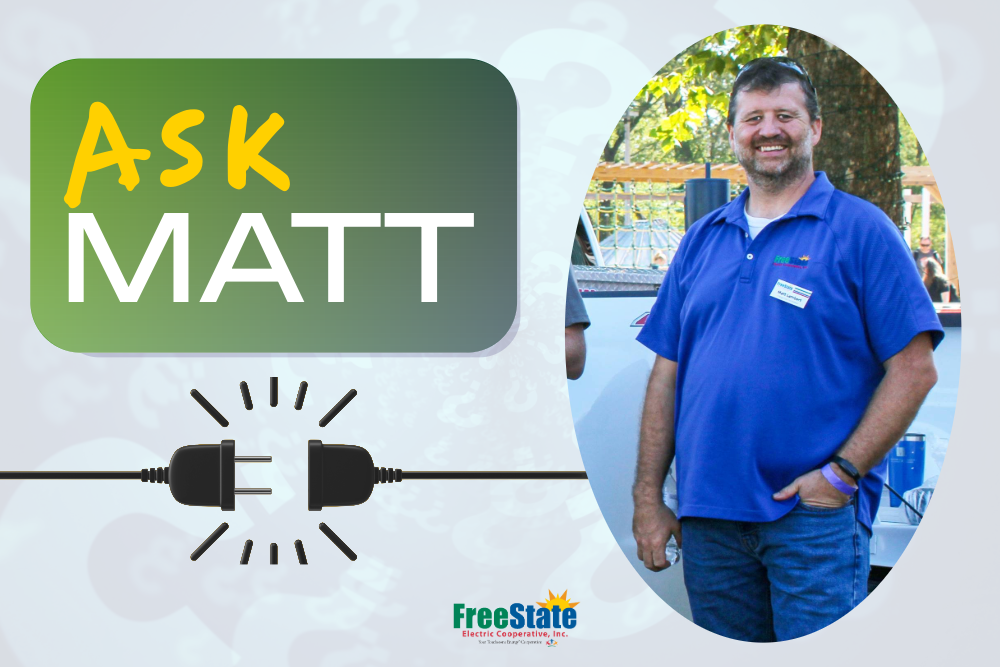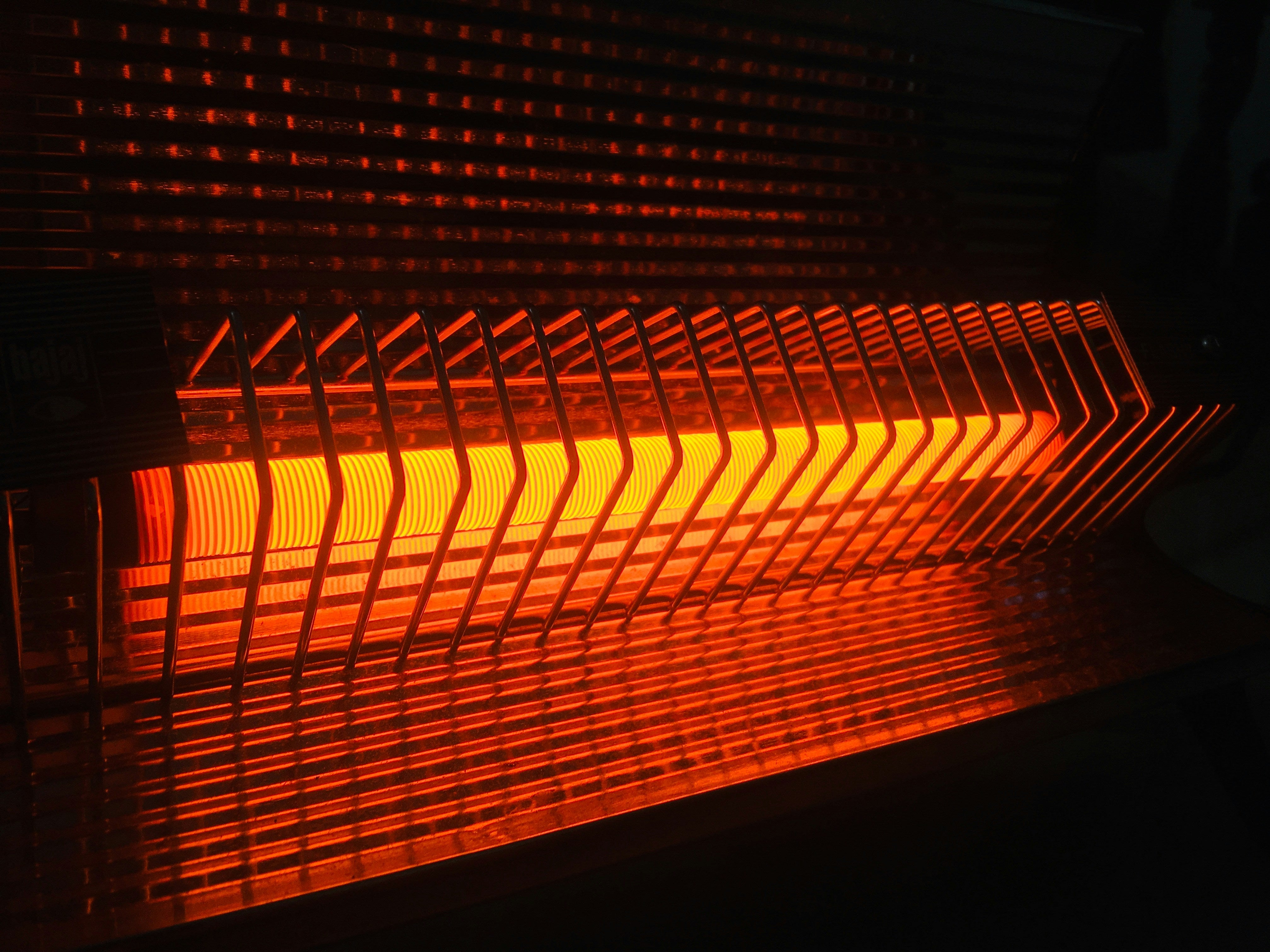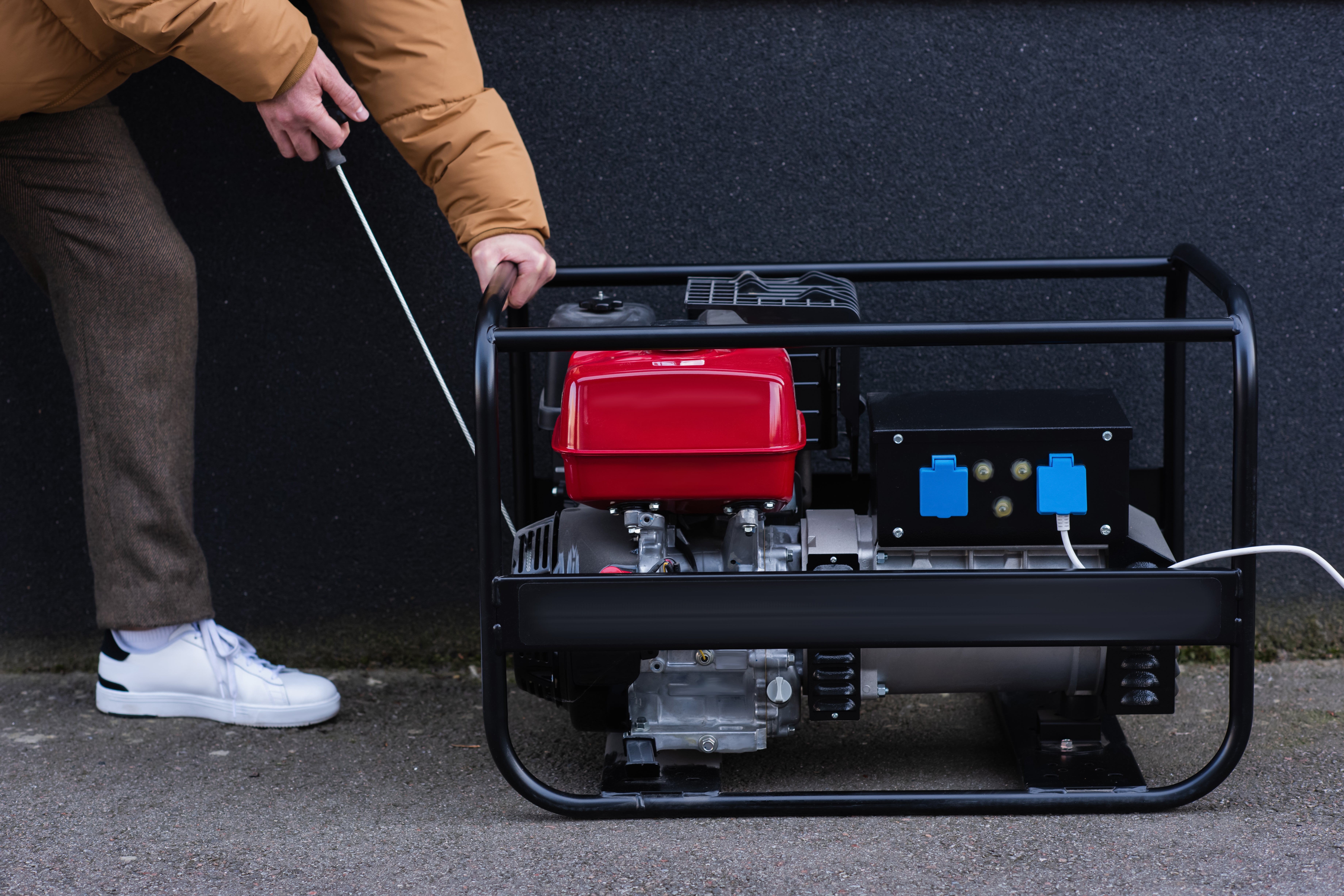Please call 1-800-794-1989 or use the SmartHub mobile app. To talk to a person, press zero.
DEAR MATT, MY BILL SEEMED VERY HIGH LAST MONTH, AND I’M NOT SURE WHY. I USED A SPACE HEATER TO SUPPLEMENT AND KEPT MY FURNACE SET LOW. SO, SHOULDN’T MY BILL BE LOWER?
Space heaters seem to make perfect sense when the temperatures drop, but they often don’t make “cents” when looking at the bigger picture.
One of the most common misconceptions is that space heaters save you money. They can be a practical solution, but you still have to plug them in, and they can pull quite a bit of electricity.
Although space heaters come in all shapes and sizes, from large elaborate looking wooden fireplaces to small ceramic boxes, most use around the same amount of electricity. The standard size is 1,500 watts, and no matter how big it is or how much you spent, all 1,500-watt units use the same amount of electricity and put out the same amount of heat.
Space heaters can save energy if you want to heat a small space, or supplement heat in one room. For example, if you are watching television and want to make it toasty, you can plug in a small space heater rather than crank up the furnace and heat the entire house. You can save money this way by turning down your primary heating source while the space heater keeps the room you are in warm. Space heaters are not cost-effective when it comes to heating larger areas or multiple rooms. Your furnace is going to be much more cost-effective.
Instead of using space heaters to take the cold away, try getting to the real problems that cause you to need them. Is there cold air coming into your home or an inefficient furnace? FreeState does have access to resources, like Attic Report Card, that can help you determine if you are losing heat through your attic.
Space heaters can be a great way to heat a small room for a limited time and are convenient because of their portability and ease of use. I use one myself in a shed that I only need to heat when I am working in it. They are just not always a great way to save money on your utility bill.
Do some research and purchase a unit that fits your needs. Some use radiant heat to heat objects and people, some use convection that warms the air and others are combination heaters that utilize both radiant heat and convection.
If you are going to use a space heater just remember that your bills can inflate if you’re using a space heater on top of another heating source.





